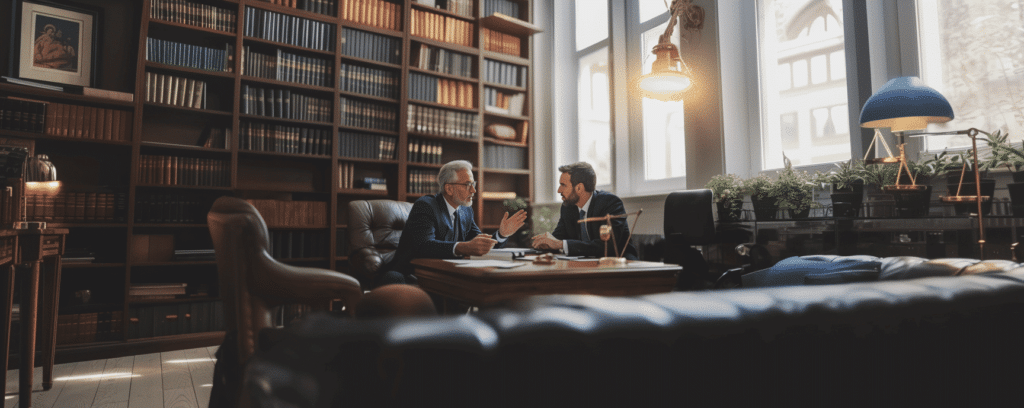Can I Sue My Landlord for Personal Injury if I Get Hurt? – Explained
Last updated Thursday, October 17th, 2024

Can I sue my landlord for personal injury? If you’ve been injured in your rental home, you may have grounds to sue if the landlord’s negligence led to your injury. This article explores when you can hold a landlord legally responsible, the common causes of injuries in rental properties, and the steps you need to take to file a claim.
Key Takeaways
- Landlords have a legal duty to maintain rental properties and address hazards to prevent tenant injuries, which can result in premises liability claims.
- Proving negligence involves demonstrating that the landlord was aware of dangerous conditions and failed to act, supported by documentation and evidence.
- Injured tenants can recover damages for medical bills, emotional distress, and lost wages, with a statute of limitations that typically requires filing within two to three years of the incident.
Understanding Premises Liability and Landlord Responsibility
Premises liability is a legal concept where property owners can be held liable for accidents and injuries that happen on their property, which can lead to a premises liability case and premises liability claims. This means that if you get hurt in your rental home or apartment, the property owner might be responsible for your injuries. Landlords have a duty to keep their properties free from hazards and to address known dangers to ensure tenant and visitor safety.
The rights of injured parties depend significantly on their status as either trespassers, licensees, or invitees. Invitees, such as tenants and their guests, enjoy the highest level of protection under the law. Landlords are legally obligated to inspect their properties, repair dangerous conditions, and provide adequate warnings to visitors. Failure to meet these obligations can result in them being held liable for any injuries that occur.
Understanding these responsibilities is crucial, as it sets the groundwork for establishing a landlord’s liability in case of an injury. Next, we’ll explore the common causes of personal injuries in rental properties.
Common Causes of Personal Injury in Rental Properties
When property owners fail to maintain safe conditions, personal injury liability claims often arise. Slip and fall accidents are prevalent causes of injury leading to lawsuits in rental settings, especially when landlords neglect to maintain safe conditions.
Wet surfaces, poor lighting in common areas, and falling objects, such as debris from unsafe roofs or balconies, can lead to serious injuries and potential lawsuits if landlords fail to maintain safe conditions.
Knowing these common causes can help tenants be more vigilant and proactive about their safety. So, what must landlords do to maintain a safe environment?
Duty of Care: What Landlords Must Do to Maintain a Safe Environment
To maintain a safe environment, landlords must regularly inspect their properties for slipping or tripping hazards and ensure that maintenance workers are qualified and insured.
To avoid liability for accidents, property owners must address known dangerous conditions. Building code violations leading to accidents and inadequate security measures, especially in high-crime areas, can make landlords liable for injuries.
Landlords are typically liable for accidents in common areas like lobbies and staircases due to unsafe conditions. Failure to meet these responsibilities can result in serious legal consequences.
Proving Negligence in a Personal Injury Claim Against Your Landlord
Proving the property owner’s negligence is pivotal when filing a personal injury lawsuit against your landlord. A breach of duty occurs if a landlord fails to remedy known hazards or warn visitors.
You must demonstrate that the landlord knew or should have known about the dangerous condition and failed to address it adequately.
For instance, ignoring repeated complaints about a broken step can make the landlord liable if it leads to an injury.
Establishing this breach of duty is essential for a successful premises liability claim.
Detailed documentation and evidence, such as photographs, witness statements, and maintenance records, are critical in proving a valid claim of negligence.
Let’s discuss the types of injuries that can lead to a lawsuit.
Types of Injuries That Can Lead to a Lawsuit
Certain types of injuries, such as serious falls resulting in broken bones or head injuries, are more likely to result in a personal injury lawsuit against a landlord. Electrical shocks due to faulty wiring are also frequent causes of injury that may hold a landlord liable.
Structural collapses, like falling ceilings or walls, can result in significant injuries leading to legal claims against landlords. These injuries often cause substantial medical expenses and emotional distress, which can be grounds for a lawsuit.
Steps to Take After an Injury Occurs
If you suffer an injury on a rental property, take immediate action. Seek medical attention to address your injuries and document them for your claim. Quickly identifying the cause of your fall can be vital for establishing negligence.
Photographs of the accident scene, potential hazards, and injuries can significantly strengthen your case. Filing a detailed official injury report with the property owner adds credibility to your claim and documents the incident.
Creating an immediate written account of the incident ensures all details are accurately captured, as memories can fade. Consulting a personal injury attorney after your accident can help you navigate the claims process and negotiate a fair settlement.
Recoverable Damages in a Personal Injury Lawsuit
You may seek compensation for various types of damages in a personal injury lawsuit. This includes past, present, and future medical bills resulting from the accident, as well as expenses for rehabilitative therapies necessary after an injury.
Non-economic damages, such as emotional distress and loss of quality of life, may also be pursued. In severe cases, punitive damages might be awarded if the property owner’s negligence was particularly egregious. Lost wages and projected future earnings can also be part of the recovery.
The Role of Insurance in Personal Injury Claims
Insurance provides financial coverage and support for affected tenants in personal injury claims. An insurance company assesses claims by evaluating the incident details, including the landlord’s liability and any evidence presented.
Negotiating with a landlord’s insurance provider can involve legal complexities, so seeking guidance through the process is advisable. Adequate warnings and clear signage about risks can help protect property owners against lawsuits.
Statute of Limitations for Filing a Personal Injury Lawsuit
The statute of limitations for filing a personal injury lawsuit ranges from one to six years, with most states observing a limit of two or three years. This sets the maximum period within which a lawsuit must be filed.
These time limits vary significantly depending on state laws. Taking timely legal action is crucial to ensure your right to file a lawsuit is preserved.
When to Consult a Personal Injury Lawyer
Consulting a personal injury lawyer is crucial when you suffer a serious injury on a rental property. A skilled attorney helps protect your rights, create a record of the incident, and seek compensation after an accident.
Law firms like Isaacs & Isaacs work on a contingency fee basis, meaning you don’t pay fees or costs unless they win your case. This ensures professional representation without upfront costs, maximizing your chances of a successful claim. Additionally, many firms offer a free consultation to discuss your case.
Frequently Asked Questions
What is premises liability?
Premises liability is a legal principle that holds property owners responsible for accidents and injuries occurring on their premises. This means that if someone is injured due to unsafe conditions, the property owner may be liable for those injuries.
What should I do immediately after getting injured on rental property?
Immediately seek medical attention and document the incident by taking photographs and filing an official injury report with the property owner. This ensures your health is prioritized and provides necessary evidence for any potential claims.
What types of recoverable damages can I claim in a personal injury lawsuit?
In a personal injury lawsuit, you can claim recoverable damages such as medical expenses, lost wages, emotional distress, and punitive damages in severe cases. These categories aim to compensate you for the impact of the injury on your life.
How does insurance play a role in personal injury claims?
Insurance plays a crucial role in personal injury claims by providing financial coverage for the injured party, and navigating negotiations with the responsible party’s insurance can be legally complex. It is essential to understand these dynamics to effectively pursue a claim.
When should I consult a personal injury lawyer?
You should consult a personal injury lawyer if you have sustained a serious injury and require assistance with the claims process or negotiating a fair settlement. This will ensure that your rights are protected and you receive the compensation you deserve.











